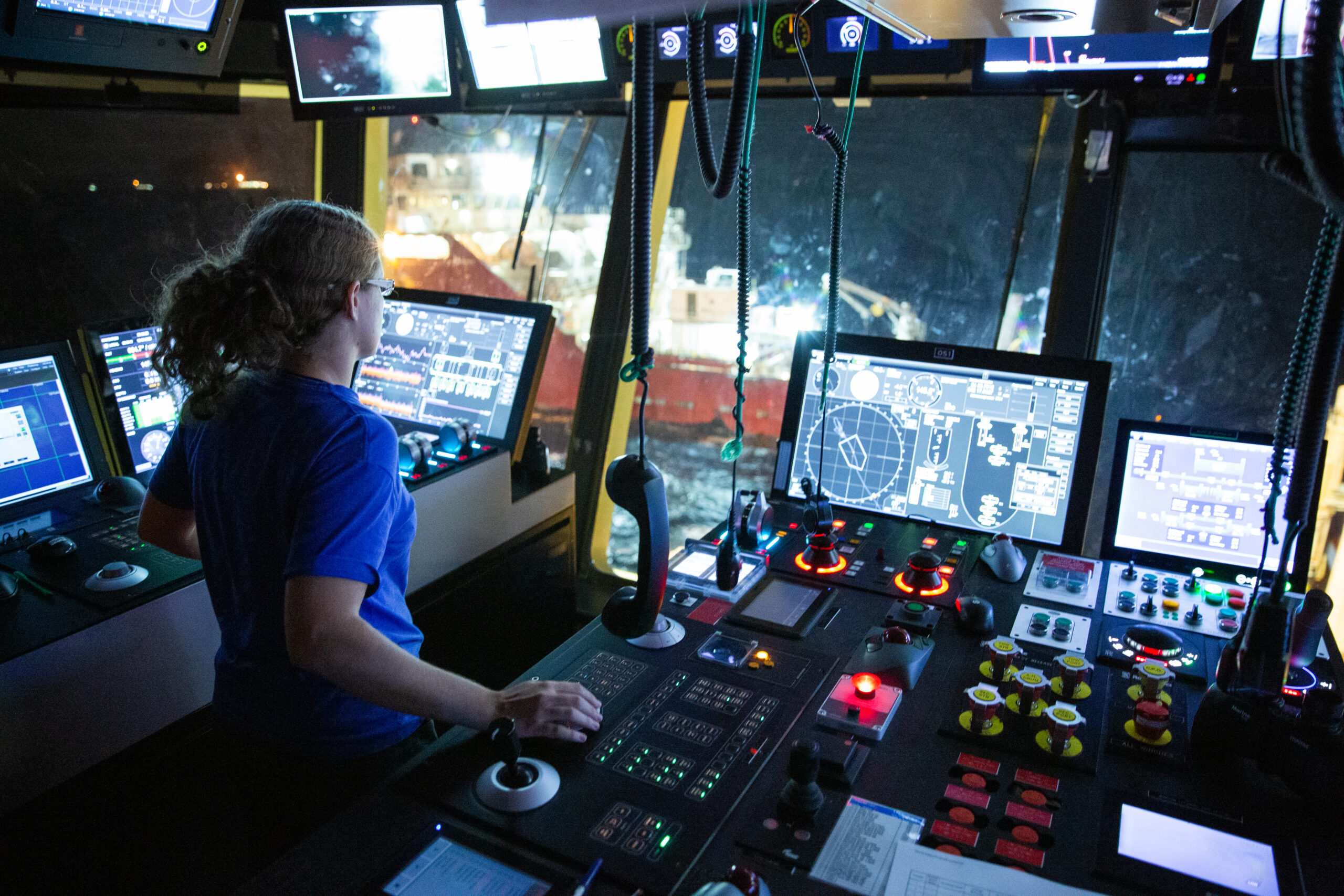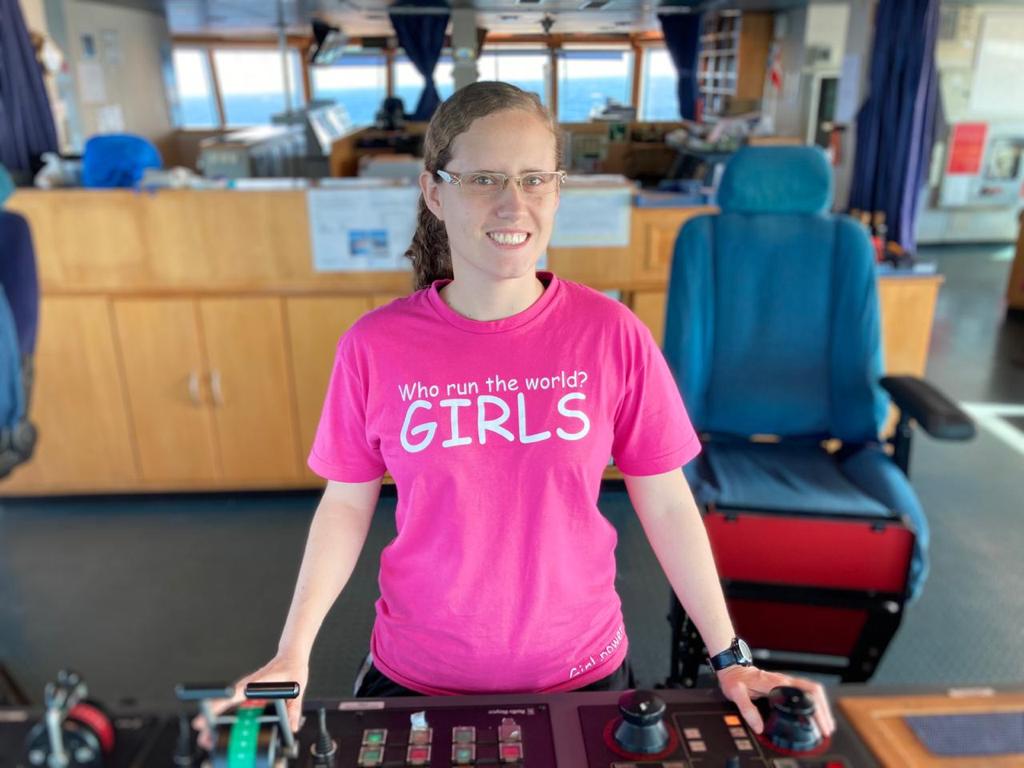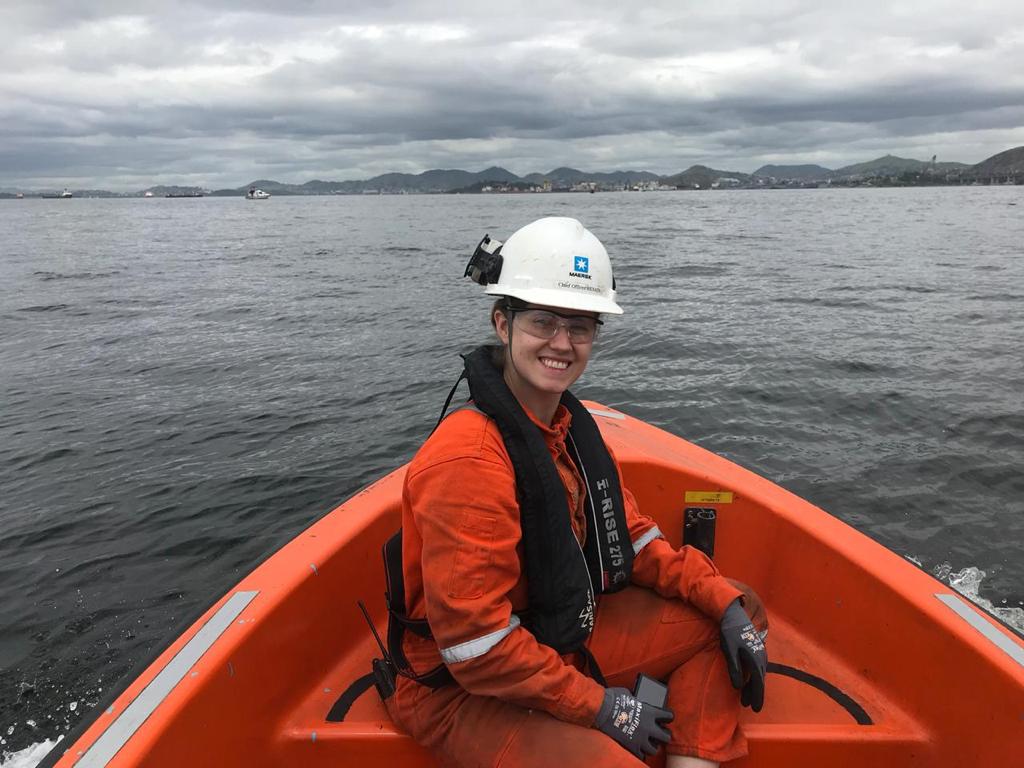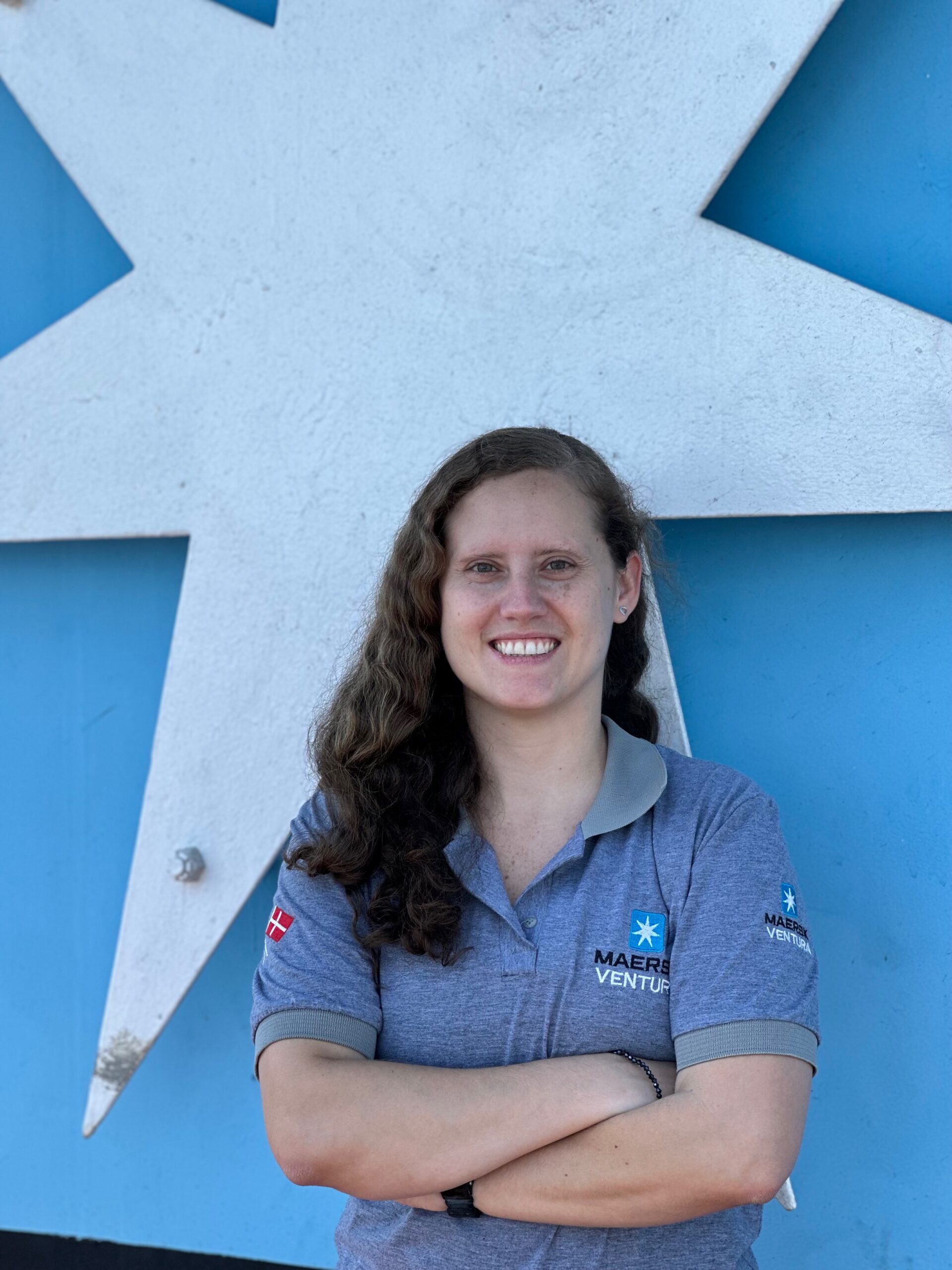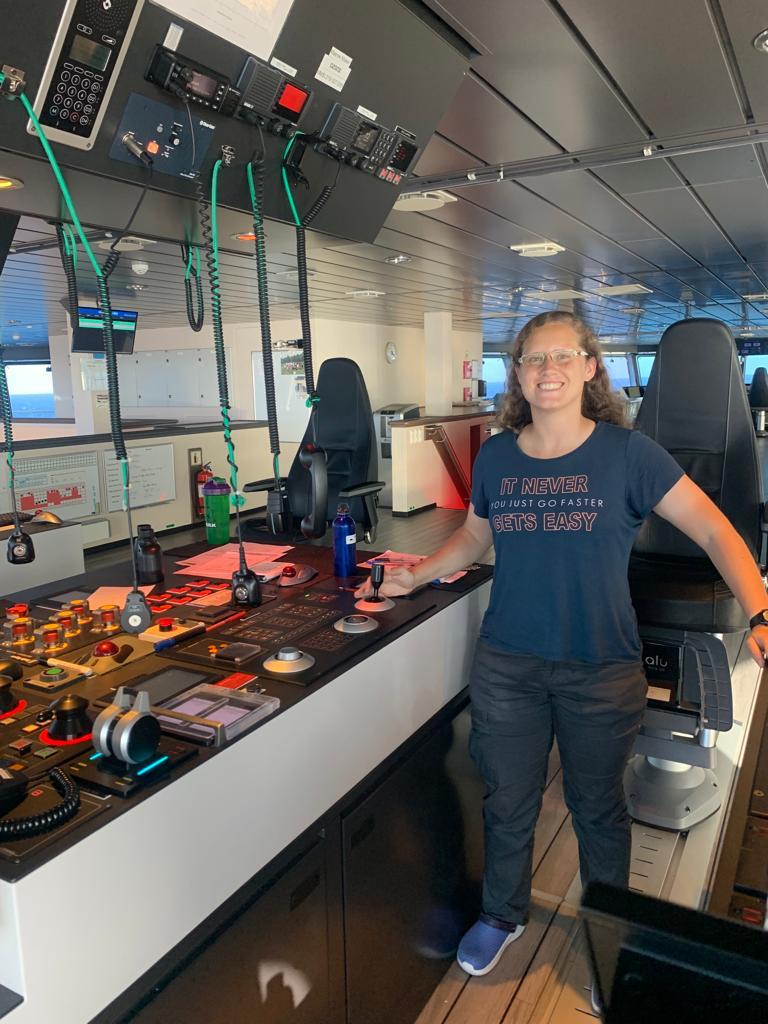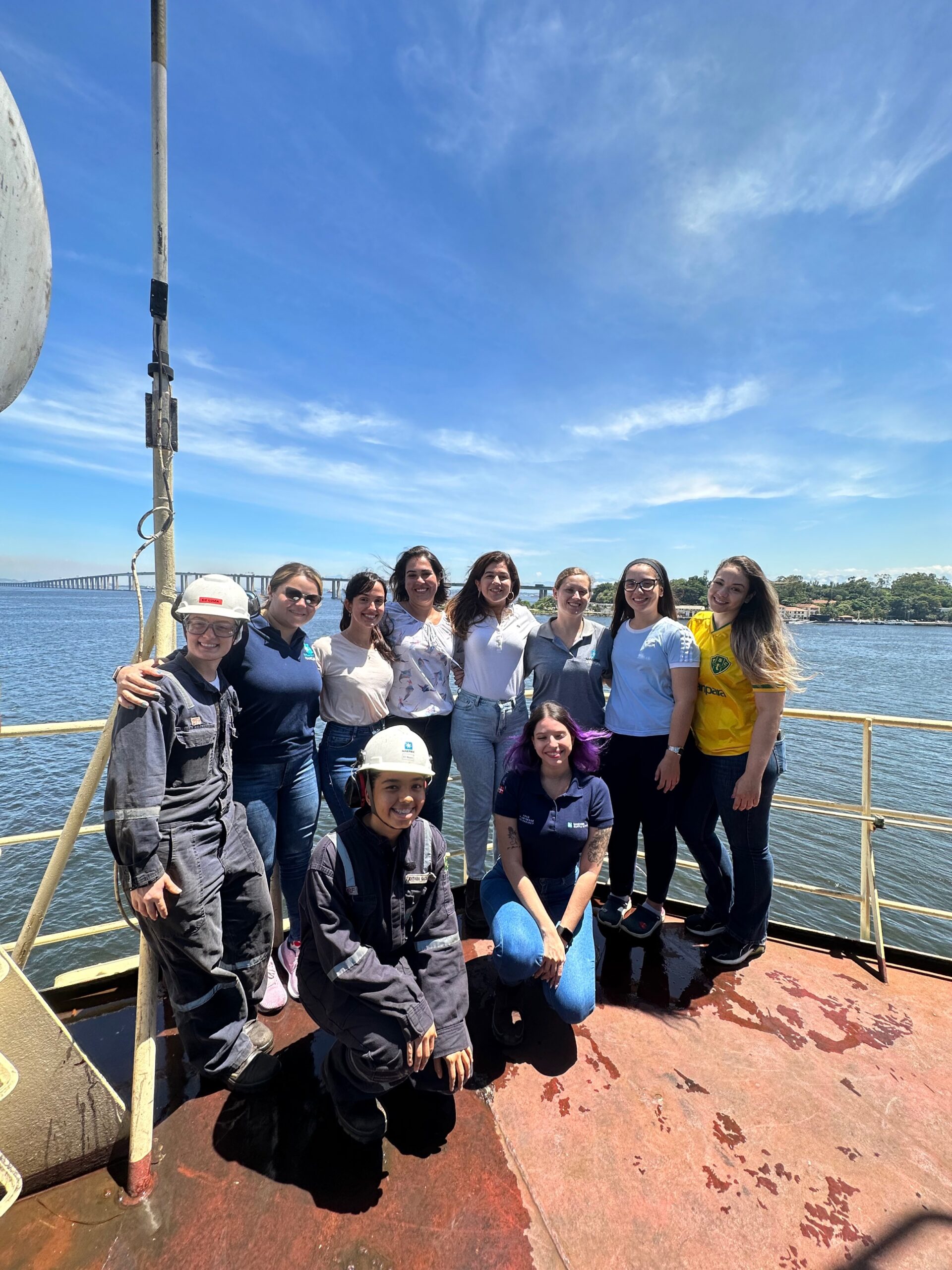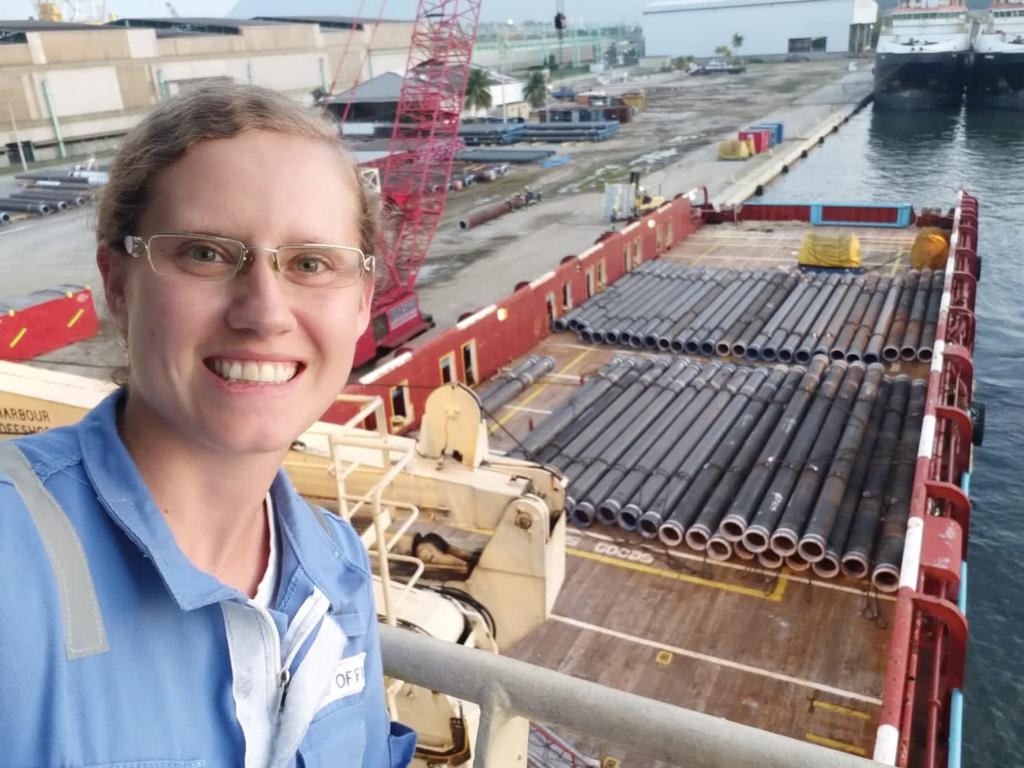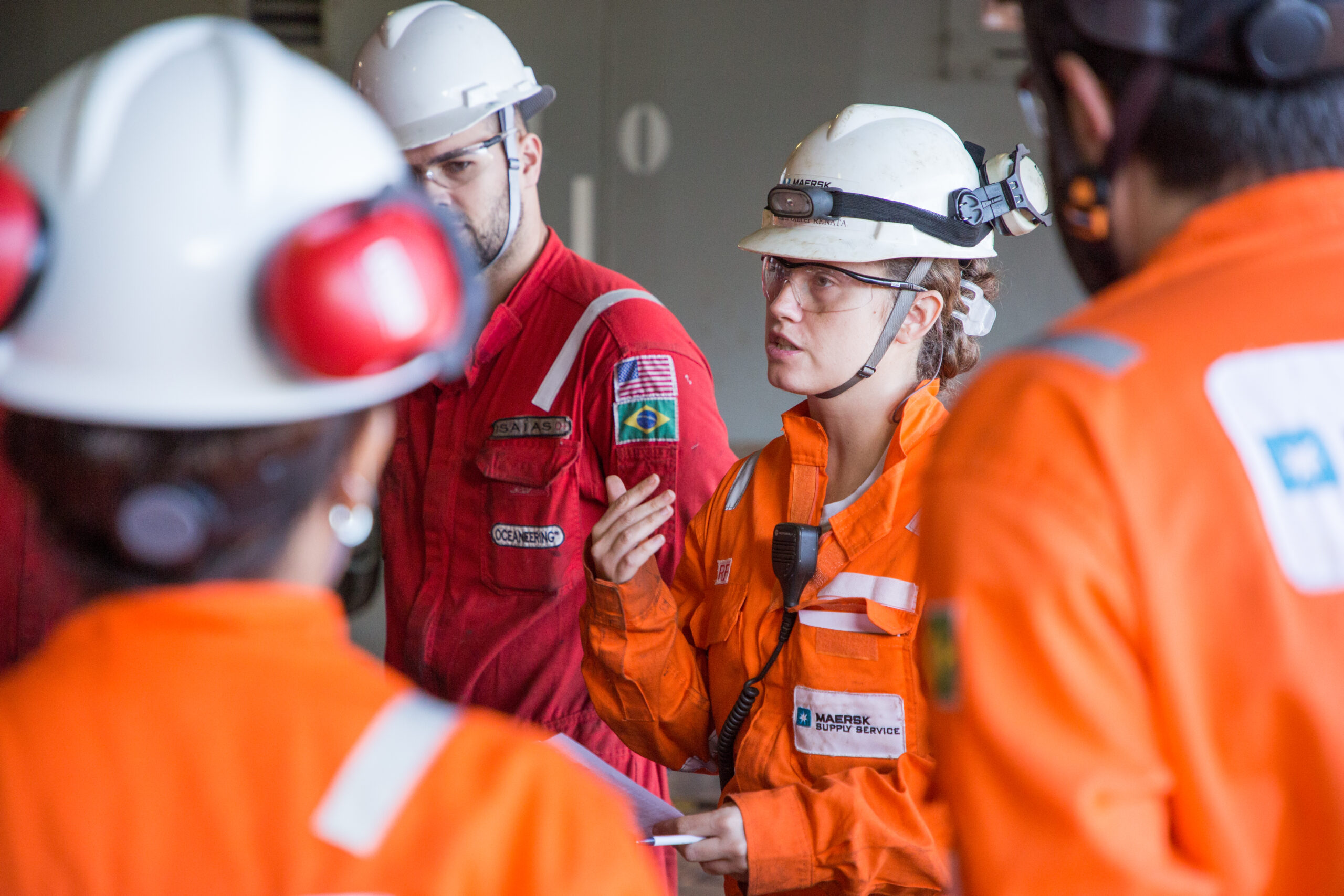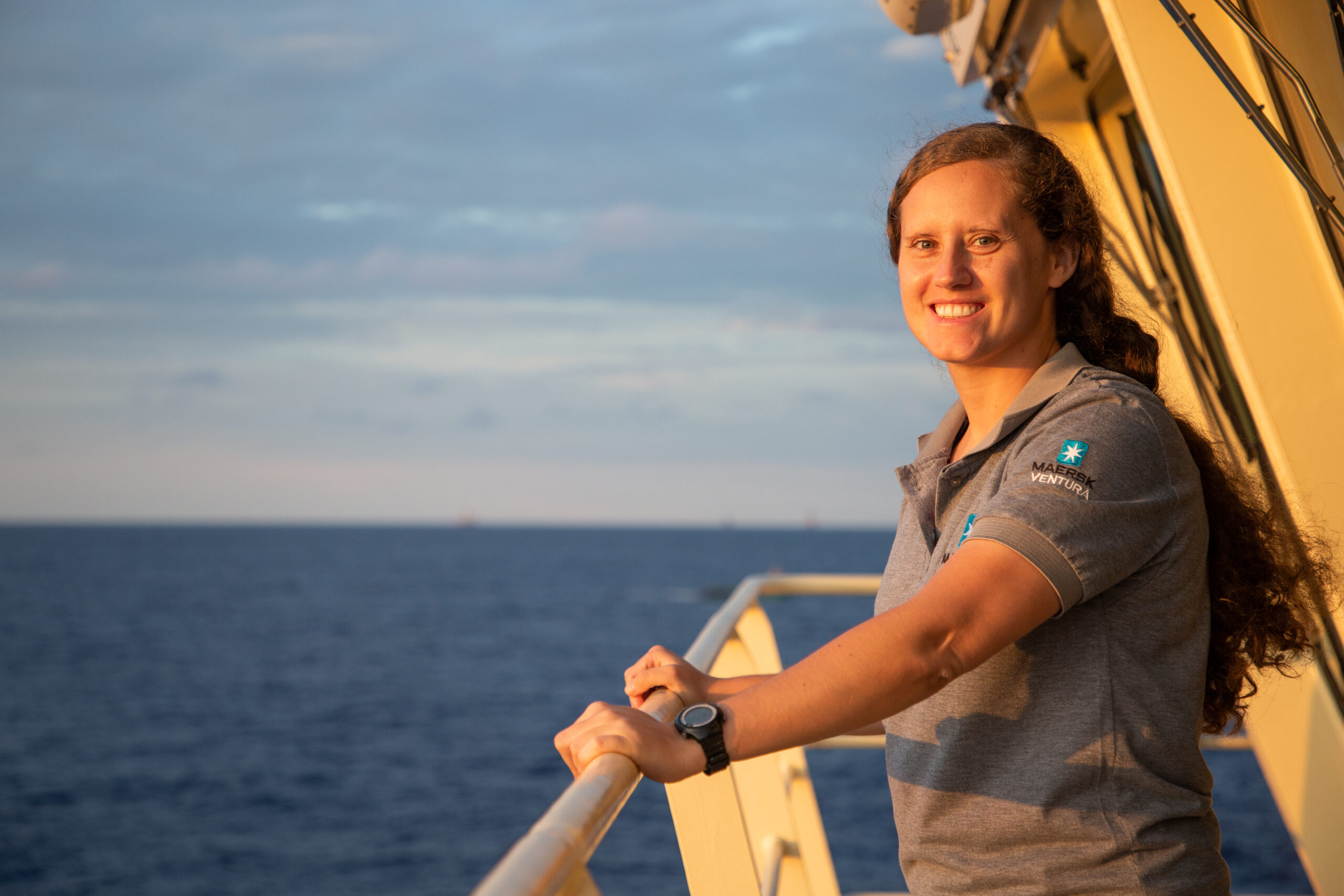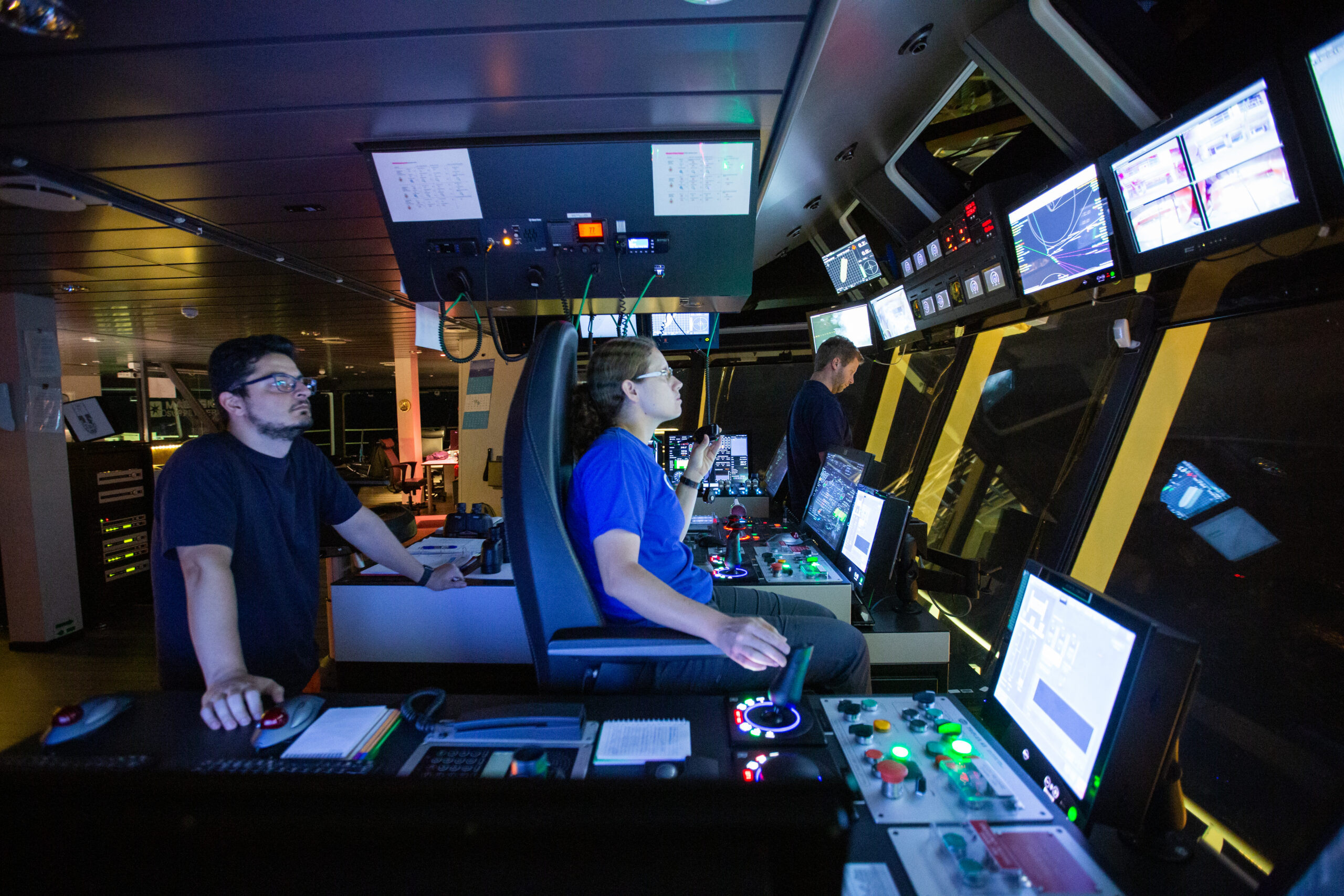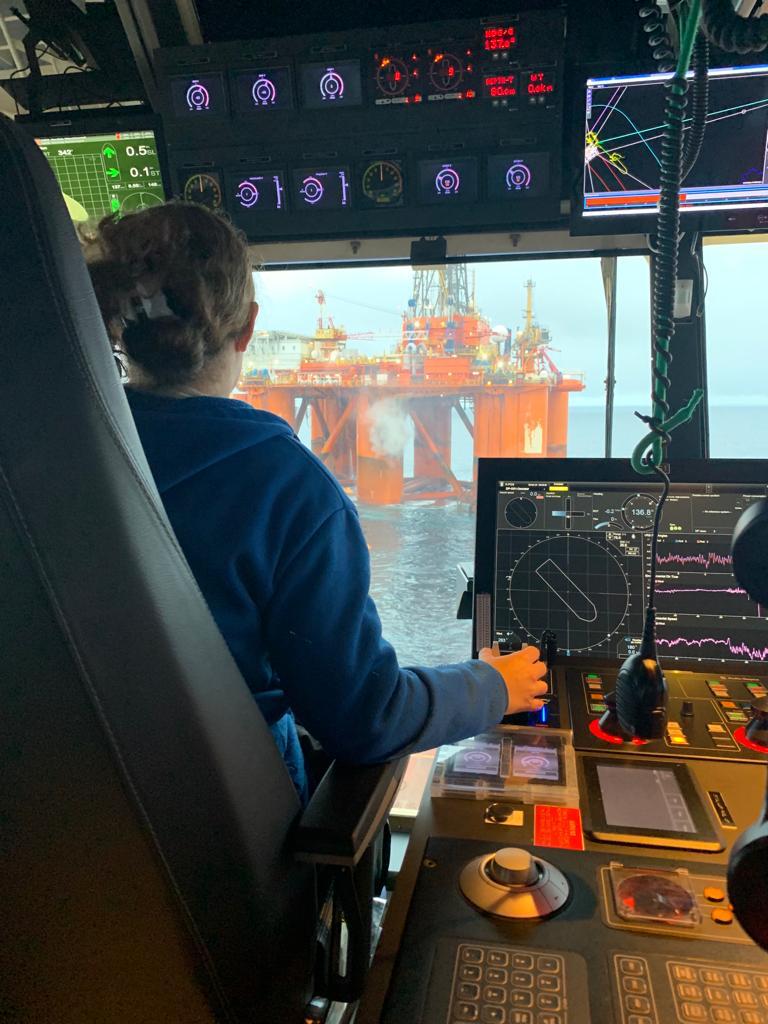“We can face challenges everywhere in life, and one of the best parts is to learn from them.”
Firstly, congratulations on becoming Captain! What are you most looking forward to in this role?
I’m most looking forward to embracing this new and huge responsibility, to building a team onboard Maersk Ventura and making them and her successful.
I’ve just completed my first assignment as an officially promoted captain, which was both a huge challenge and an amazing experience, since it involved all the inspections, sea trials, sailing and set up that comes with a vessel reactivation. Maersk Ventura is an ‘experienced lady’ that I care a lot about, as she was also the vessel where I properly took on the role of Chief Officer, so I definitely have a soft spot for her. Actually, I referred to her as an ‘old lady’ last time I was in Copenhagen, and a colleague joked that we should call her ‘experienced’ instead – I like that and totally agree.
I’m also looking forward to becoming a role model for other girls who want to become captains, showing them that becoming a captain is possible regardless of gender.
Many MSS cadets have named you as one of their role models. Who have your role models been?
I’ve worked with some fantastic Captains and Chief Officers throughout my career, who have really helped to shape who I am today. That said, I haven’t really had any female role models myself to look up to as Senior Officers at MSS.
Tell us a little about yourself. How long have you worked at Maersk Supply Service and what was your starting position?
I started as a deck cadet in 2009! My first 9 months were spent with Maersk Line, back when the apprenticeship was still split between Line and Maersk Supply. I was hired as 2/O at the end of 2010 and have never thought of leaving the company.
What inspired you to become a seafarer and what excites you most about your role?
At first, I actually wanted to join the military, the routine and discipline had a lot of appeal. In Brazil, the Merchant Marine Academy is a military academy, so after some research, I found myself particularly interested in the bridge officer roles. I’m the first in my family to work at sea, but I thought I’d give it a try – and liked it, so I stayed!
The most interesting part of my job is the level of diversity in it. Working with huge range of offshore operations and scopes, complex assignments, working with so many different people with different cultures, nationalities and mindsets, operating, manoeuvring and managing under clear skies or on rough seas, in port of offshore…
And I think what excites me the most is the challenges we face every day, and the way that each one helps to us develop as people, as team players and as seafarers. It means we are constantly improving ourselves, and that’s really rewarding.
What does it mean to you to work offshore?
It means staying away from home for half of the year, but on the other hand it also means having a huge responsibility onboard a vessel – which all seafarers have, at every level, from a safety, operations and team perspective alone – but also in dealing with different kind of operations, to learn from each one, to overcome myself, to assist in developing people – it’s fulfilling! And to live in a world a lot of people don’t even know about.
What have you discovered about yourself during your seafaring career?
Well, needless to say that I love my job! I love what I do. I guess I can also say that I found myself to be stronger than I ever thought I could be.
What has been the biggest challenge you’ve faced in your seafaring career and how did you overcome this?
Naming only one is hard! The challenges I faced as a Second Officer cannot be compared with the ones I met as Chief Officer…and many of those are different again to the challenges I’ve already faced and will now see as Captain.
But a recent challenge was hearing that some people were considering the possibility that I was being promoted to Captain only because I am a woman. In the beginning, that did not hit well… But I don’t care about this anymore – going through the full promotion and selection process really energised me and gave me the strength to face any such comments without getting affected.
And what are some personal highlights of your career so far?
Becoming a Captain, for sure! And more generally, every time I’ve faced a challenge and overcome it, proving to myself that I was capable, knowing I could do it. But I’ve also really liked being a part of other seafarers’ journeys, knowledge sharing, assisting others with their apprenticeships and development as well.
Every step of my own carrier has felt remarkable in its own way. From being a cadet sailing aboard my first vessels with all this brand new information coming in, to all the trust I was given as 2/O across a huge variety of operations, then to the huge responsibility of becoming a Chief Officer, heading up a department and developing a lot in that role… And now, Captain, I don’t even have the proper words to define that. It is an honour and gratifying.
Can you tell us about the different vessel types you’ve sailed aboard? What do you enjoy most?
I’ve mostly been on anchor handlers and platform supply vessels, old (“experienced!”) and new. I was cadet at Maersk Stockholm, Skagen Maersk, Maersk Provider, Vega and Champion.. I started out as an Officer on AHTSs: Maersk Provider, Boulder and Launcher (including torpedoes!). Then to the PSV Maersk Vega, one trip on Leader and one on Asserter, back to Boulder then to Ventura as C/O. Most recently I was onboard Maersk Maker for the Mero II ops (also AH ops in Europe…and my first time working with ROV during the Mero II project) – and now I’m back to Ventura again as Captain.
If you had some advice for new seafarers joining MSS, what would that be?
Always have our core values in mind, be proactive, assertive, diligent and willing to learn.
High standards and performance are not gender-related, and you are your own competitor. Just go out there and do it, you can manage. Being a seafarer is not easy but if you love what you do, it becomes easier. We can face challenges everywhere in life – and one of the best parts is to learn from them.
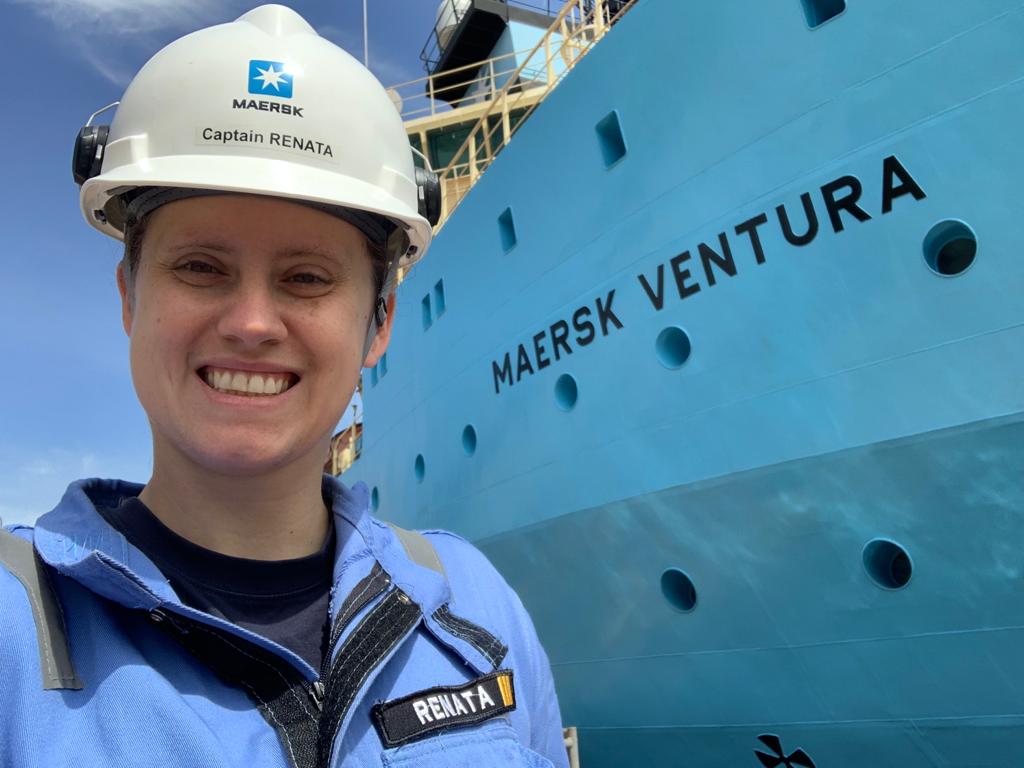
Name: Renata Engler
Title: Captain
Nationality: Brazilian
Located: Offshore Brazil
“High standards and performance are not gender-related, and you are your own competitor.
Just go out there and do it, you can manage. Being a seafarer is not easy but if you love what you do, it becomes easier.”
“Supporting vessel dockings onsite has allowed me to experience procurement on a whole new level – it is definitely where the real action is!”
“It is interesting to work as a leader because I’m able to support the development of others and follow their progress”
“The most interesting aspect of my job is probably the mix of building relations with our clients and understanding their needs, all while gaining an understanding of our regional markets.”
“Every time our team concludes a project, I feel I am directly contributing to the development of our Company, the local economy and the world.”
“The most interesting part of my job as a Chief Officer is being in direct contact both with the operational aspect and the management team being able to contribute with practical decisions of the vessel.”
“What I love most about Maersk Supply Service is the feeling of shared purpose held by all employees. It makes my work life very meaningful to be able to connect with my colleagues sharing one common goal – to make Maersk Supply Service a leader in solving the energy challenges of tomorrow.”


